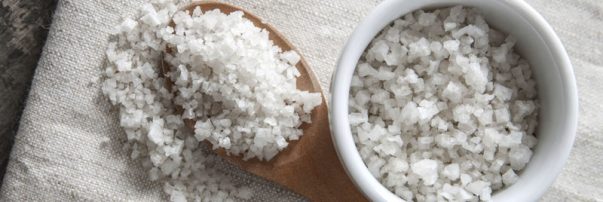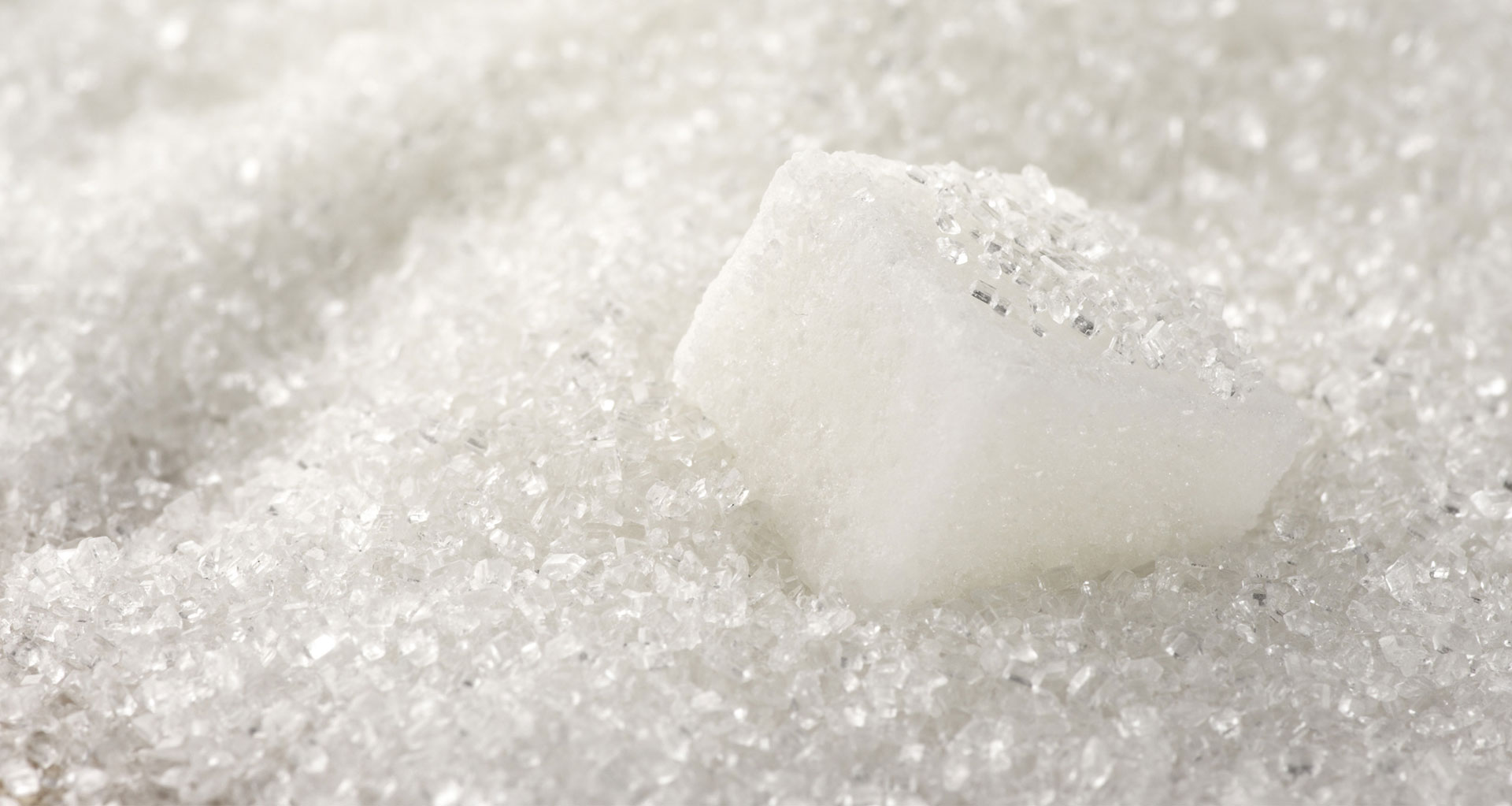August 6th, 2017 •
Comments Off on Adrenal Fatigue and Salt Cravings: Choosing the Right Salt

Craving salt is a classic sign of adrenal fatigue. This craving often occurs in the advanced stages of adrenal fatigue. As our adrenal glands become unable to produce enough of the hormone aldosterone, our kidneys eliminate sodium from your body which leads to salt cravings.
If you suffer from adrenal exhaustion and find yourself constantly craving salt, you might be worried about the impact salt has on your cardiovascular health. After all, you’ve probably heard that too much salt raises your blood pressure and is bad for you…
But as I will discuss in this article, salt can actually be highly beneficial to adrenal fatigue sufferers and isn’t something you necessarily have to avoid in your diet. In truth, it’s all about consuming the right salt…
Why Salt is Beneficial for Adrenal Fatigue Sufferers
Most salt is created when sea water evaporates or it is mined from the rocky underlayers of the earth’s surface. Without salt, the human body would be unable to survive. Salt is our main source of sodium, which is needed to maintain our body’s fluid levels. It also helps send nerve impulses, affects muscle function and regulates blood pressure and volume.
Besides the importance of salt for healthy human functioning, it is also one of the most widely used and oldest forms of food seasoning and food preservation. This is because bacteria have difficulty growing in a salt rich environment.
Now the reason why salt has a bad reputation (in large amounts) is that it binds water in the bloodstream which raises blood pressure. But not all salt is created equal, there are natural salts such as Himalayan Pink and Celtic Salt just to name a few and there is plain old table salt.

Table Salt
The salt that is often used in studies about sodium consumption is table salt. Table salt is an industrial product created by superheating natural salt to 1,200 degrees Fahrenheit, which destroys the majority of beneficial elements that are naturally occurring. Table salt is fortified with iodine, bleached, devoid of trace elements and often aluminium hydroxide (to make it more free-flowing) and other chemicals are added. Some experts argue that it is this highly processed version of salt that creates the many sodium-related health problems, and that unrefined natural salts heal our body instead of harming it.
Now transferring this to adrenal fatigue. As you probably know eating a healthy and nutritious diet is a key component in recovery from adrenal exhaustion. But where you might assumed that salt is bad for you, the surprising truth is that healthy natural salts can prove highly beneficial to adrenal fatigue sufferers.
Here is why:
Our adrenal glands secrete more than 50 different types of hormones. These hormones help our body to deal with stress, inflammation response, libido and also fluid balance. One of these hormones is a mineralocorticoid called aldosterone. Aldosterone plays an important role in balancing fluid and salt levels within our body. Salts are made up of electrolytes such as potassium and sodium; these electrolytes affect our body’s fluid levels.
According to basic biochemistry, where sodium goes water follows. Aldosterone tells our kidneys to reabsorb or hold onto the sodium that goes through them so that it does not leave our body through urine. When sodium is retained, so is water. Our cardiovascular system is a closed system, so the more aldosterone that is released by our adrenal glands, the more water that is retained, which in turn leads to a higher blood volume. If all else equal, this higher blood volume increases the pressure in our blood vessels leading to a higher blood pressure. So if our body senses that our blood pressure is low, more aldosterone is released. This is an automatic and continuous process of internal fluid balancing. So far so good.
Now when we are under chronic stress, eventually our adrenal glands are unable to secret sufficient hormones like cortisol and aldosterone. When aldosterone levels drop, so too will sodium retention in our body. This can lead to frequent urination, dehydration, low blood pressure and feeling dizzy upon standing. To replace the sodium we have lost, we crave for salty foods such as potato chips, peanuts, pizza and pickles. Or we just salt our food more.
Increasing our salt intake through the foods in our diet is one way to correct these imbalances. For example, drinking a glass of lemon water with a pinch of natural salt first thing in the morning can make a big difference for adrenal fatigue sufferers. Another great idea for anyone with adrenal fatigue is to consume 1-2 cups of Bone Broth per day. As long as you keep in mind to use a quality natural salt. Or you can just add a little natural salt to your dishes.
But isn’t salt bad?
The truth of the matter is that whether or not salt is bad for you really depends on what type of salt you are talking about. Just like organic grass fed beef is better than grain fed beef or organic produce is better than regular produce, table salt is nowhere near as good as natural salt.
Unrefined natural salt is not harmful in moderate amounts. In fact it contains minerals and trace elements needed by the body to function properly and has many benefits:
- Natural salt clears congested sinuses.
- Natural salt removes excess acidity from the cells of the body.
- Natural salt is an antihistamine.
- Natural salt can prevent muscle cramps.
- Natural salt makes bones firm.
- Natural salt is vital for absorption of food particles through the intestinal tract.
- Natural salt supplies the body with over 80 essential mineral elements.
- Natural salt balance blood sugar levels in the body which benefits people suffering from Adrenal Fatigue and diabetes.
- Natural salt stabilizes irregular heartbeat due to its ability to regulate blood pressure.
- Natural salt is essential for power generation in the cells of the body.
Natural Salts
Table salt typically consists 97.5 percent sodium chloride and 2.5 percent man made chemicals, this is not good for the body. However natural salts like Celtic and Himalayan (see below) are full of minerals and trace elements that are found naturally in our bodies that are vital to us. The most predominent elements are chloride, sodium, sulfur, magnesium, potassium, calcium, silicon, carbon and iron. Celtic and Himalayan salt are two really good salts that you can start out with and then you can experiment with other natural salts to suit your needs and taste.
Celtic Salt – this sea salt is naturally harvested in Brittany, France, near the Celtic sea. The geographical orientation of the Atlantic and the climactic conditions of the region play an important part in the unique mix of sea minerals and the quality of salt that is extracted. Celtic sea salt supplies all of the essential 82 minerals and trace elements needed by the human body for optimal health and longevity
Himalayan Pink Salt – this salt actually does not have as strong a salt taste as table salt. You may even notice after switching to this salt that table salt will have a very bitter taste to you because of how different this salt tastes. It actually comes from the Himalayan Mountains and is so full of essential minerals and trace elements that you will notice a big difference in your body when you switch from table salt.
These are just a few options, you may find a natural salt that has a flavor that you like better and that is fine. The key is to move away from table salt and increase your intake of salt with natural salts.
If you suffer from hypertension (high blood pressure) or have other medical reasons for limiting your sodium intake, then it is suggested that you seek the advice of your medical doctor before making an adjustment to your daily salt intake. If you decide to increase your sodium intake, think about adding a moderate amount of Celtic (or Himalayan) salt to your dishes. Choose a sodium product that is better for you than the average table salt!
Conclusion
Salt is highly beneficial for adrenal fatigue sufferers, but it is definitely important to choose the right kind of salt. Unlike normal table salt, natural salts like Celtic salt and Himalayan pink salt have no additional additives and contain all the essential minerals and trace elements that are so vital to human health, making them a natural choice over processed table salt.
If you suffer from adrenal exhaustion, removing table salt from your diet and replacing it with natural Celtic or Himalayan salt is a great step to take. You may also want to consider moderately increasing your salt intake to help correct the imbalance in your body’s electrolyte load, but also be aware that this isn’t suitable for everyone. If you suffer from high blood pressure or other medical conditions, make sure to consult with a doctor before adjusting your salt intake.













